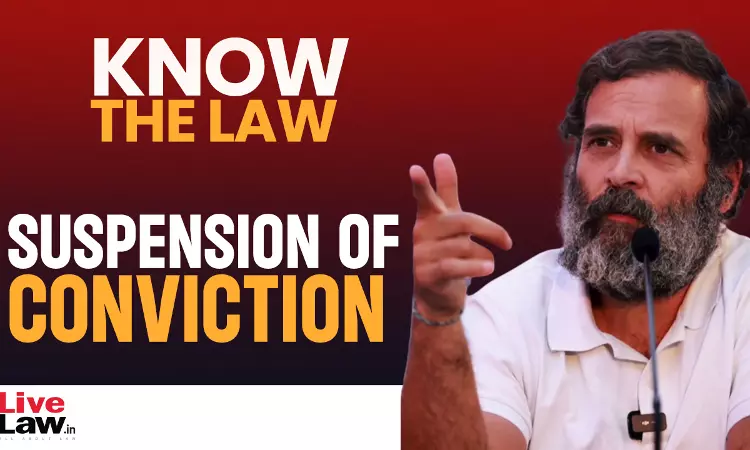Rahul Gandhi’s Lok Sabha Disqualification: Legal Position On Suspension Of Conviction | Explainer
Aiman J. Chishti
11 April 2023 7:35 PM IST

Next Story
11 April 2023 7:35 PM IST
Congress leader Rahul Gandhi was recently disqualified from his position as a Member of Parliament after his conviction in a defamation case. He was disqualified in accordance with Article 102(1)(e) of the Indian Constitution read with Section 8 of the Representation of People Act, 1951.He has filed an appeal in Surat Sessions Court to challenge his conviction in the defamation case. While...
